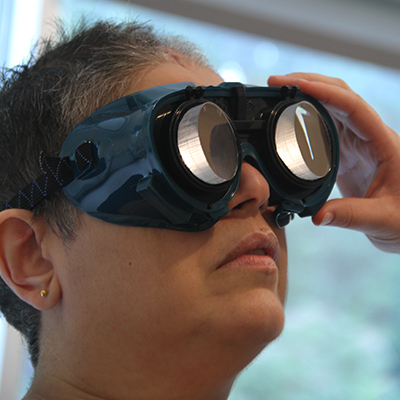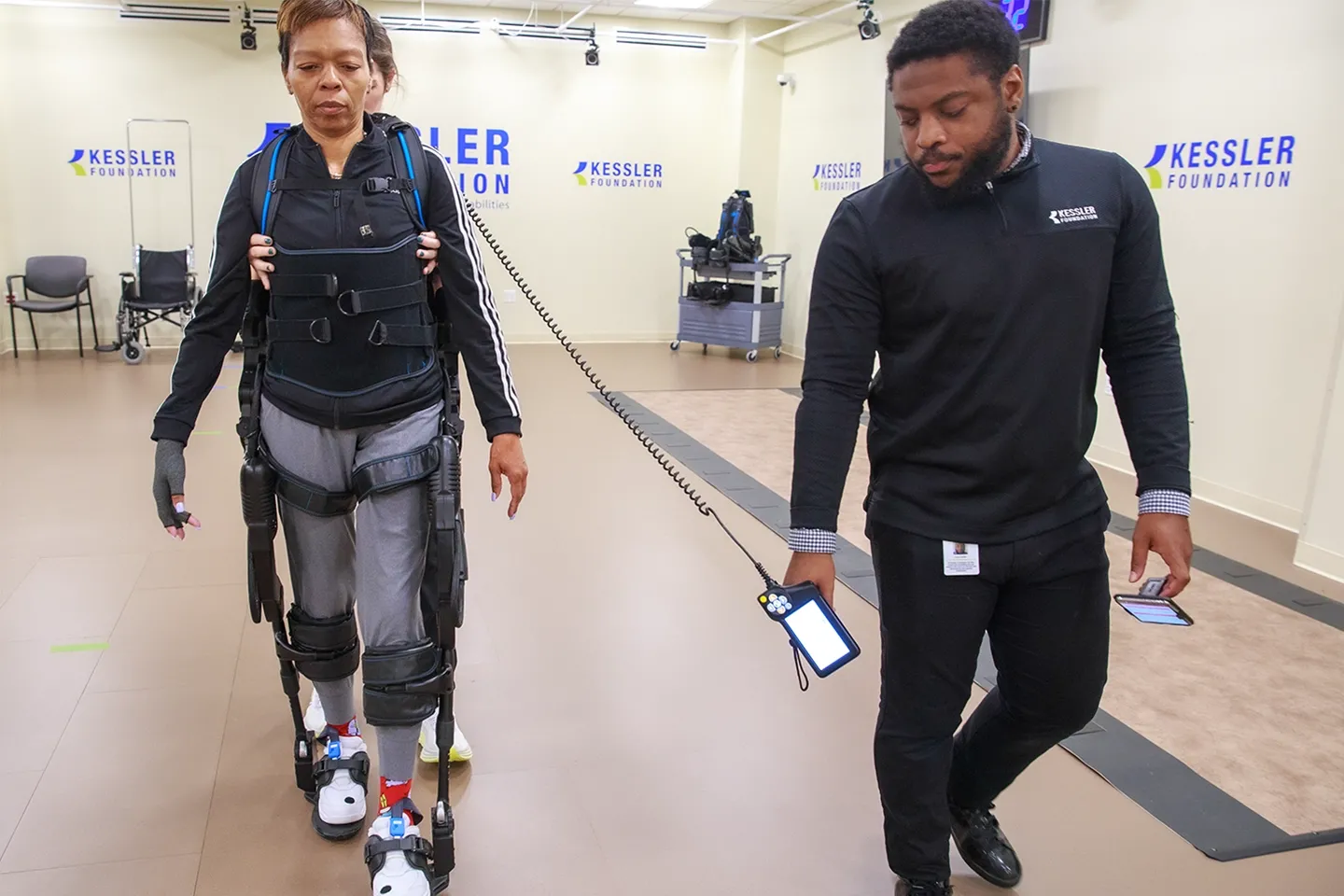
Spatial Neglect Guide for Stroke Survivors
Stroke survivors with spatial neglect have a higher risk of falls, stay hospitalized longer, and have poorer rehabilitation outcomes than stroke survivors without spatial neglect. Below are some explanations, tips, and resources that should get you started.
-
Stroke is a brain attack that usually results in a brain injury.
-
A stroke occurs when a blood vessel that carries oxygen and nutrients to the brain is either blocked by a clot or bursts (or ruptures). Learn more about stroke at the American Stroke Association and National Stroke Association.
-
Stroke affects different people differently depending on where the injury is in the brain and what neural network is impaired.
-
Spatial neglect is a syndrome that commonly occurs after stroke. It results from a brain injury that impairs the neural networks of spatial attention and related motor and cognitive functions.
-
Left neglect is more common than right neglect. The neglected side of space is usually the same side as the more affected limb after stroke.
-
You may find yourself having difficulties in locating objects on your “bad” side or bumping into the doorway on your “bad” side. You may find it difficult reading a door sign, a clock, a newspaper headline, or a takeout menu. You may hear people say “look left” a lot to you but you do not understand why. You may be reminded several times a day that you need to take care of your affected arm and leg. These are examples of spatial neglect symptoms.
-
Tell your stroke care team about your symptoms, and they will help you find the treatment that works for you.
Tips for Stroke Survivors
-
Trust your stroke care team and work with them as best as you can. It may be frustrating that you do not fully understand your diagnosis, such as spatial neglect. But have faith in your therapists, doctors, and nurses who are specialized in stroke rehabilitation.
-
Keep moving. Keep practicing. Never give up. Rehabilitation involves many repeated therapy activities and exercises, which are necessary for the brain to regain its functions that support your physical, mental, and cognitive abilities.
-
Form your own support group. Stroke recovery and function rehabilitation can be a long journey. It is better to go through it with people you care and people who care about you.
Resources for Survivors
Multimedia
- PODCAST: In this podcast lecture,A.M. Barrett, MD presented “ Practice-RRuN: A Practice-based Inpatient Rehabilitation Research Network to Improve Spatial Neglect Care.
-
PODCAST: This episode features Dr. Michael Reznik presenting “Delirium After Brain Injury”
Dr. Reznik is a neurologist in the division of Neurocritical Care at Rhode Island Hospital and assistant professor of Neurology and Neurosurgery at the Warren Alpert Medical School at Brown University.
-
PODCAST: Bench to Bedside Brown Bag Podcast Series
A podcast series about developed treatment and evidence based protocols developed by Kessler Foundation researchers for rehabilitation therapist.
A.M. Barrett, MD presented "Better Outcomes for Spatial Neglect Rehabilitation" Dr. Barrett is director of Stroke Research at Kessler Foundation. - VIDEO: Kessler Foundation’s Director of Stroke Rehabilitation Research, Dr. A.M. Barrett, shares her exciting research that is helping patients recover from the debilitating effects of a stroke. Courtesy: One-on-One with Steve Adubato
- VIDEO: The Assessment and Treatment of Spatial Neglect in Stroke Survivors A pilot study in high-risk population at Newark Beth Israel Medical Center Funded by Healthcare Foundation of New Jersey
- VIDEO: It is recommended that the KF-PAT™ be administered by trained individuals only. The KF-PAT™ may help reducing symptoms of spatial neglect. The Kessler Foundation is not responsible for clinical outcomes.
Practice-based Rehabilitation Research Network
Below is a list of the facilities participating in the Practice-based Rehabilitation Network. Known as Practice-RRuN, this is a nationwide network where stroke survivors with spatial neglect can receive an evidence-based treatment -- prism adaptation treatment -- leveraging a visuomotor phenomenon to improve spatial neglect. It involves repeated arm movements to visual targets while wearing goggles fitted with prism lenses. Facilities participating in the Practice-RRuN project implement prism adaptation treatment using the Kessler Foundation Prism Adaptation Treatment (KF-PAT®) protocols and equipment.
|
Facility |
Location |
Contact number |
|
|
Kessler Institute for Rehabilitation at West Orange |
West Orange, NJ |
877-322-2580 |
|
|
Kessler Institute for Rehabilitation at Chester |
Chester, NJ |
877.322.2580 |
|
|
Saddle Brook, NJ |
877.322.2580 |
||
|
Marlton, NJ |
856.988.4106 |
|
|
|
Harrisburg, PA |
717.920.4300 |
|
|
|
St Louis, MO |
314.447.9810 |
|
|
|
Miami, FL |
305.260.1827 |
|
|
|
Los Angeles, CA |
424.522.7111 |
|
|
|
Columbus, OH |
614.484.9713 |
|
|
|
Denton, TX |
940.297.6500 |
|
|
|
Scottsdale, AZ |
480.800.3905 |
|
|
|
Atlanta, GA |
404.712.7593 |
|
|
|
Schenectady, NY |
518.382.4500 |
|
|
|
University of Maryland Rehabilitation and Orthopaedic Institute |
Baltimore, MD |
410.448.2500 |
|
| Cleveland Clinic Rehabilitation Hospital, Edwin Shaw | Copley, OH | 216.455.6444 |

Volunteers are the Heart of Research
Provide your information below and someone from our recruitment team will contact you about research opportunities. Learn more.